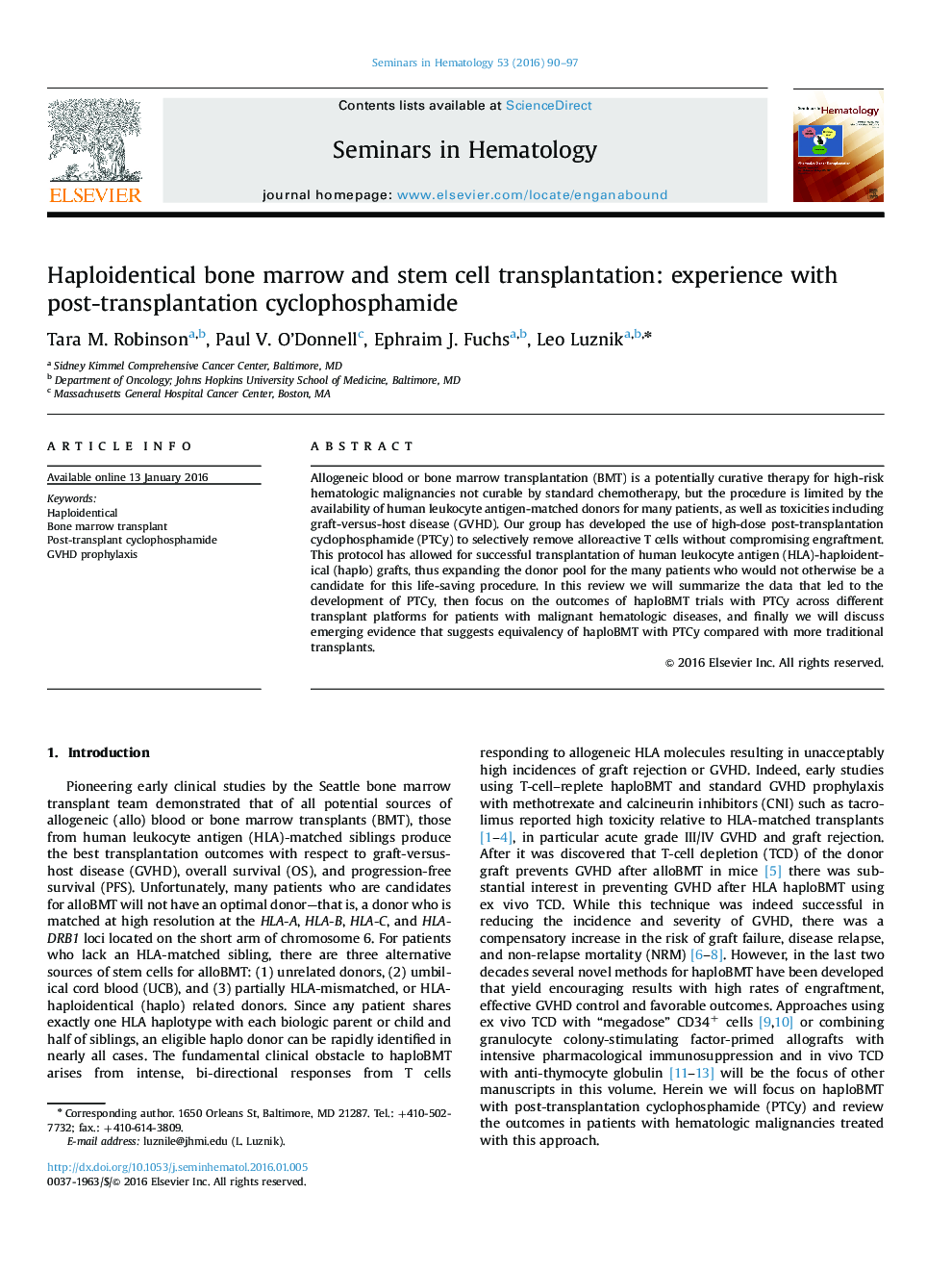| Article ID | Journal | Published Year | Pages | File Type |
|---|---|---|---|---|
| 3333383 | Seminars in Hematology | 2016 | 8 Pages |
Allogeneic blood or bone marrow transplantation (BMT) is a potentially curative therapy for high-risk hematologic malignancies not curable by standard chemotherapy, but the procedure is limited by the availability of human leukocyte antigen-matched donors for many patients, as well as toxicities including graft-versus-host disease (GVHD). Our group has developed the use of high-dose post-transplantation cyclophosphamide (PTCy) to selectively remove alloreactive T cells without compromising engraftment. This protocol has allowed for successful transplantation of human leukocyte antigen (HLA)-haploidentical (haplo) grafts, thus expanding the donor pool for the many patients who would not otherwise be a candidate for this life-saving procedure. In this review we will summarize the data that led to the development of PTCy, then focus on the outcomes of haploBMT trials with PTCy across different transplant platforms for patients with malignant hematologic diseases, and finally we will discuss emerging evidence that suggests equivalency of haploBMT with PTCy compared with more traditional transplants.
